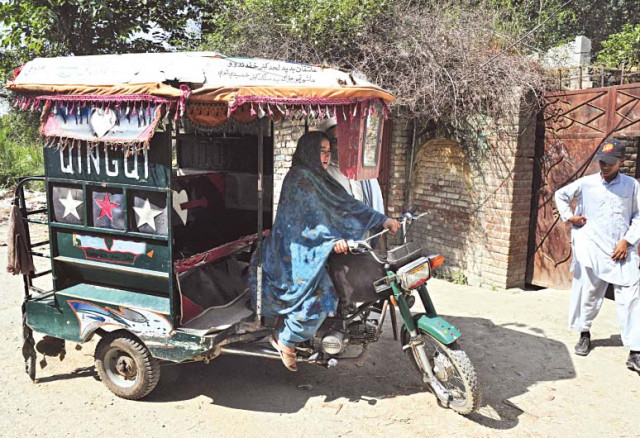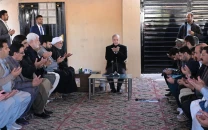Shell shocked: A split second that changed their lives for the worse
Fate of most survivors awaiting promised compensation from the government, remains largely un-documented.

Shell shocked: A split second that changed their lives for the worse
The 15-year-old Raees Khan has not been to school since February 2010. Instead, he helps take care of his father, who lost a leg and suffered back injuries in a bomb blast that killed 117 people at a Peshawar bazaar in October 2009, and is no longer able to work as a mason.
“I once dreamt of becoming an engineer, since I was good at my studies and topped my class,” Khan said, according to a report by IRIN, the UN information unit. He now works as a waiter at a restaurant. “It is fate. I am glad my father is alive, but I know my future has changed forever.” His younger brother, Ajmal, 13, has also dropped out of school to work at a shoe store.
Khan’s mother Sadiqi did not want this for her children but her work as a seamstress simply did not bring in enough money home.
According to media reports, there has been marked increase in child labour as a direct result of bomb blasts in the country. One report highlighted the plight of an 11-year-old girl who now drives a tricycle rickshaw, as her father can no longer do so.
Moreover, psychological trauma, which is a main issue for some survivors, is not considered a disease by people who don’t understand it, especially in the rural areas. “My 11-year-old brother was slightly wounded in a bomb blast that killed 36 people in May this year,” said the 20-year-old Muhammad Saleem from Hangu. “He still has nightmares about the badly injured or dead people he saw, and no longer speaks much. We don’t know what to do.”
Brian Moller, project manager for Médecins Sans Frontières in Hangu, whose doctors helped treat many of the victims, wrote in a press release: “Two minutes after the explosion, wounded people streamed into the emergency room, where we managed the triage. We saw severe head injuries, multiple fractures, serious chest wounds and shrapnel in arms and legs.”
Faiza Yasir, a Peshawar-based psychologist, said, “Any child exposed to sights such as those at Hangu is likely to suffer trauma. The experience is one that would almost inevitably leave deep scars.” She added that very facilities exist to help people, especially in far-flung areas such as Hangu.
Hashim Yousaf, 10, has suffered similar, lasting trauma. His mother, Reena Bibi, says the child, who was caught up in the July 2010 blasts at the Data Darbar shrine in Lahore was not hurt, but now refuses to leave the immediate vicinity of home, even to go to school. He has recently begun seeing a psychiatrist on the advice of doctors.
The fate of most survivors and their families remains largely un-documented; however evidence is emerging from the depth of suffering. Abida Bibi, who lost her husband in a bomb blast that killed 30 people in a bazaar in Peshawar, said, “We received no compensation, though it was promised. Since my husband died in 2008, I have struggled desperately, washing and ironing clothes, to raise our three small children.”
But even those who get compensation are not better off in the long run. “The government generally gives out compensation to the families of those killed, and the injured, but these sums soon run out,” said Nauman Ali, a doctor who volunteers with the Edhi Foundation, and is planning to set up an NGO to help blast victims. He said there is no such organisation at present and no data exists on families who have lost one or more wage-earners or have members who are disabled permanently.
According to the South Asian Terrorism Portal, run by the New Delhi-based Institute for Conflict Management, there have been 37,765 fatalities as a result of terrorist violence in Pakistan since 2003. In 2011, there have been 996 deaths and 2,411 injuries in bomb blasts across the country.
Published in The Express Tribune, November 2nd, 2011.



















COMMENTS
Comments are moderated and generally will be posted if they are on-topic and not abusive.
For more information, please see our Comments FAQ